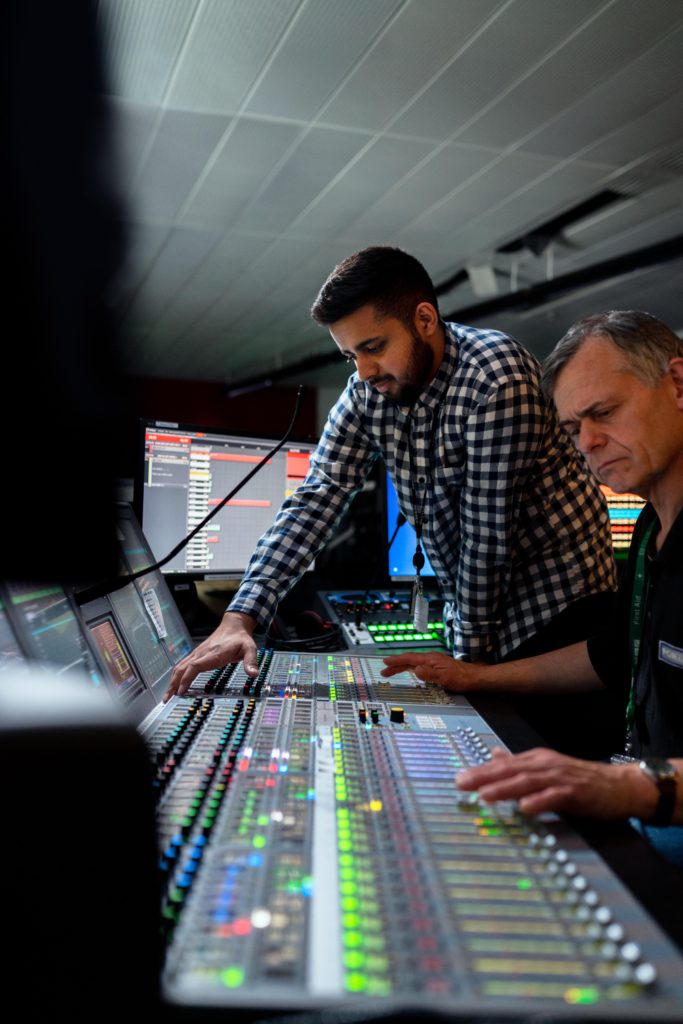In the world of music, there are so many individuals who work hard to create, master, and distribute the content you hear. Music engineers are often working behind the scenes, but they play a crucial role in bringing the dreams of musicians to life.

Defining a music engineer
A music engineer, also known as an audio engineer or sound engineer, is a professional responsible for capturing, mixing, and reproducing sound. Their canvas is the recording studio, and their palette consists of various elements – from instruments and vocals to ambient sounds and electronic effects. In essence, they are the individuals who transform raw musical elements into the songs we hear through our speakers or headphones.
Roles and responsibilities
1. Recording
At the heart of a music engineer’s role is the art of recording. They collaborate with musicians to capture the essence of a performance, using an array of microphones and recording equipment to ensure each note is perfect. This process captures the passion and energy that goes into each musician’s performances.
2. Mixing
Once the recordings are complete, the music engineer begins mixing. This involves balancing the individual tracks, adjusting volumes, panning instruments across the stereo field, and applying various effects. The mix is the process where raw tracks are transformed into a whole song. Without it, we wouldn’t have the music we do.
3. Editing
Precision is key in of music engineering. Engineers edit recordings to correct imperfections, enhance timing, and ensure a seamless flow. This process requires both technical proficiency and a keen ear for detail. They have to fix any errors and make subtle tweaks in a way that won’t harm the overall sound.
4. Mastering
The final touch in the music engineering journey is mastering. This involves preparing the mixed tracks for distribution by fine-tuning overall tonality, dynamics, and ensuring consistency across an entire album. Mastering is the last step before the music reaches its audience, making it a critical phase in the production process.
Shaping the music experience
While the spotlight often shines on the performers and composers, the role of the music engineer is no less significant. They work hard to transform artistic visions into perfected audio. Their technical expertise, creative flair, and dedication makes them vital contributors to the music industry.
In conclusion, a music engineer is not just a technician, but a true artist in their own right. Without their knowledge and skill, many musicians simply wouldn’t be able to release their tracks. It’s unfortunate that, so many are overlooked. Their role isn’t often thought of when you play your favourite track. Perhaps after reading this, that will change.



